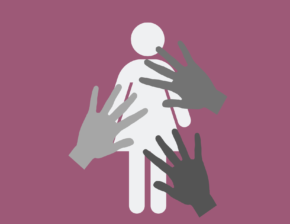Wouldn’t it be great if we lived in an enlightened age where sexual harassment was an obsolete term describing something that only happened a very long time ago?
Sadly, despite great strides forward in awareness and action, such as from the #MeToo movement, incidents of sexual harassment are still stubbornly on the increase. Figures from ONS and the Crime Survey of England and Wales state that there was a 31% increase in police recorded sexual harassment offences in March 2022 compared to the previous year. In a TUC poll from April 2023, 58% of women stated they had experienced harassment at work, with the figure rising to 62% for those aged between 25 and 34.
Perhaps this can partly be explained through an increase in awareness, courage and support for victims to come forward, but that only goes to show just how deeply ingrained misogyny and the degradation of others is within our cultures and societies. Case in point, look across to Spain, women’s football, Rubiales and Vilda.
In 2021 the UK government pledged to provide more safeguards for victims of harassment and committed to the Worker Protection (Amendment of Equality Act 2010) Bill. It’s aims were noble – to reinforce the existing legal framework to provide additional support to victims. Unfortunately, the planned for changes have been significantly watered down courtesy of the House of Lords. The reintroduction of third party harassment has been removed and the new duty of employers to prevent sexual harassment (involving unwanted conduct of a sexual nature) has been changed from employers having to take “ALL reasonable steps” to prevent sexual harassment of employees in the course of their employment”, to them having to take “reasonable steps” ie a much lower threshold.
Although the removal of the word ‘all’ is disappointing, it does not prevent this from being an important new duty that employers will have to take seriously. However, for deep rooted and sustained change to happen, employers are going to have to:
- prioritise the creation of safe working environments
- engender a culture of respect
- establish clear reporting and monitoring processes
- engage and encourage everyone to play a role in preventing and calling out inappropriate workplace behaviour
- provide sensitive and timely support to anyone involved with a sexual harassment complaint
In the meantime, the Bill still has a few more hurdles to go through before it becomes law – we can only hope that it isn’t watered down any further!

